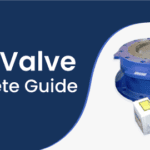A] Reasons to Choose the Best Conveyor for Material Handling
In most cases, conveyors are not applied properly due to several reasons. It includes the desire to maintain the number of equipment to a minimum value while following the respective spending limits. While there are several factors affecting material handling system, especially while selecting a conveyor, you should understand the primary evaluation metrics used for the purpose. One of the best ways to know about the best options for continuous or batch processing is considering requirements for every material movement, right from the start. You should be capable of answering what is the best way to fulfill the needs of your material conveying or handling process. This will put you in a better place to ensure the right selection of the best conveyor material handling system from a reliable pneumatic conveyor manufacturer.Ready to Choose the Perfect Conveyor for Material Handling
B] Factors to Consider in Selecting the Right Conveyor for Material Handling
Finding the right conveyor for material handling should involve understanding the different types of conveyors and specific designs for material handling that are highly compatible with the respective operations. There are several conveyor types you should choose from. Some of the most commonly conveyor types used in different material handling systems are bucket elevator, roller conveyor, belt conveyor, vacuum conveyor, tubular conveyor, screw conveyor, pneumatic conveyor, and so more. Each of the conveyor types is available with its own merits and demerits. While deciding the factors in choosing a conveyor for material handling, it is important to look into the unique requirements of your products as well as operations. It is also important to analyze how they will be ultimately impacting the choice of the conveyor system. Some important factors to consider are:1. Specification of the Product
Before deciding on the conveyor, it is important to consider different aspects of the product -including type, height, length, and width of the product. Additionally, weight of the product also plays a crucial role in determining the right type of conveyor to be used. It is because it helps in determining the right size of the conveyor motor that is required. While deciding the right type of conveyor, it is recommended to look into how bulky the material to be conveyed is. Does your product have specific characteristics that should be handled differently -like explosiveness or moisture content? Is the product inflammable? Should you handle the material to be conveyed gently because of its extreme fragility? Does the material to be conveyed have characteristics like abrasiveness or corrosiveness? Is it required to maintain a specific temperature condition? Some of the conveyor systems are not built to handle specific materials gently. For instance, if you are required to move fragile materials like food items, you should avoid using conveyors that could lead to product loss or damage. In most cases, disc conveyors and tubular cable conveyors tend to be gentle on your products while making the process of long-term use a viable option.2. Available Space and Layout
In some cases, the selection of the right conveyor system will involve considering the amount of space available for the installation of material handling systems. You might not have access to ample ceiling height or floor space to accommodate specific conveyor types. Some conveyors, including tubular drag systems, tend to be highly customizable while being designed to maximize available space. The design of the conveyor system can be laid out based on incline or decline, production flows, and requirements for product transfer. It will also feature corner sections while making use of overhead space. It is important to note that the production line’s layout should deliver ease of access while cleaning and maintenance while also ensuring worker’s safety and operational performance. The best conveyor system designs should help in optimizing production flows towards improving productivity and efficiency.3. Energy Efficiency
Did you have a look into the energy requirements of the system? In addition to energy consumption, it is also crucial to consider the overall duration of your product towards reaching its destination. You should also look into the overall speed profile required from the conveyor. The aspect of energy efficiency becomes less significant if your conveyor keeps running at full speed due to the high initial cost.4. Facility Environment
Your objective should be moving materials in a way that will not negatively impact the environment of plant operations. Does your material pose any risk of explosion or fire? Is the material inflammable? When you wish to select the right conveyor system, consider whether or not the product is sensitive to vibrations or high temperatures? Is it required for the material to be kept clean, contamination-free, or safe? The open trait of bucket elevators and slider bed conveyors will allow contaminants to enter the product. Therefore, it is important to keep the conveyor material as clean as possible.5. Cleaning & Maintenance
When you wish to compare different conveyors, you should analyze the total time spent on cleaning and disassembling the entire system. Usually, conveyors featuring minimal joints are easier to clean. While selecting the right conveyor system, it is recommended to consider your options carefully towards maintaining maximum hygiene levels and minimizing maintenance costs -both for the transportation systems and plant equipment.6. Cost
The overall cost is going to serve as a major role when you wish to choose the right conveyor system. Eventually, it is recommended to invest in the right equipment soon rather than suffering the overall consequences later. A cost-effective conveyor might cost your business in the long run. Particularly, it becomes the reason why you are not able to comply with the safety and health rules & regulations.7. Objective of the Conveyor
When you are selecting the conveyor for your facility, it is always recommended to keep the overall goal of your company in mind, improving productivity and meeting specific goals. It is important to think about the objective of the conveyor system, how you will use the same, and what you would want out of the same for your organization. Will the conveyor system help in improving productivity? Is it expected for the material to adhere to specific quality standards? Are there particular regulations that are required to be fulfilled during the project? When you are aware of the purpose of the conveyor system, your overall choice becomes simpler. You can eliminate the options that do not meet your specific objectives while choosing the one that fits your requirements perfectly.8. Type of Material to be Moved
Another important consideration while choosing the right conveyor system is the type of material you wish to handle in the operations. You should look into aspects like moisture content, temperature, and abrasiveness of the material towards choosing the right conveyor system. Additionally, you should also conduct in-depth analysis of the type of material to help you select the right equipment for the first time ever.9. Mode of Operation
The conveyor style you choose will significantly depend on the mode of operation you will be running. You can come across two major categories as far as material handling operations are concerned. One is conveying -taking material from some pick-up point and moving the same to the desired drop-off point. The other is feeding. It is a more time-consuming process in which the material is inputted into the conveyor system in different batches or some constant flow. Whichever category you might be dealing with, you should choose the right equipment to handle operations seamlessly.Ready to Choose the Perfect Conveyor for Material Handling
Conclusion
Selecting the right conveyor system for your material handling project will make the entire process efficient and highly productive. Take your time while making the decision that delivers the best outcomes for your business. It is important to look into factors affecting the material handling system in case of bulk processing equipment. The right sizing and selection of the conveyor system is helpful in successfully meeting your specific production goals in continuous or batch processing projects. Take time to understand different factors while choosing the right conveyor system.
Frequently Asked Questions on Key Factors For Selecting a Conveyor For Material Handling
When choosing a conveyor for material handling, important considerations include product weight, size, and fragility, as well as the available space within your facility. Other factors like energy usage, cleaning requirements, cost, and safety must also be aligned with your operational goals. Paying attention to these key factors to consider when designing a conveyor system ensures long-term efficiency, smooth plant operations, and reliable performance.
Material traits are central to conveyor selection criteria. For instance:
- • Fragile products require systems that move gently without causing damage.
- • Abrasive or moist materials often demand robust, enclosed conveyors.
- • Hazardous or toxic materials call for extra safety-focused designs.
Matching the conveyor design with product properties ensures safe handling and efficiency, whether it’s for food, pharma, or heavy industrial materials.
Facility layout and available space greatly influence material handling equipment selection. Operations with floor or height restrictions benefit from compact or modular conveyor systems. Careful space planning ensures workflows are not interrupted, improves worker safety, and helps maximise productivity even in complex plant environments.
Maintenance and cleaning are critical for reliable performance. Easy-to-clean designs with fewer joints help reduce downtime and minimise contamination risks. This is especially important for industries that require strict hygiene standards, such as pharma and food processing. Selecting conveyors that simplify upkeep lowers long-term costs and ensures dependable productivity across sectors.
Cost must be balanced with performance when evaluating types of conveyors in material handling. While budget-friendly systems may seem appealing initially, they can compromise efficiency and durability. A system that aligns with your productivity, quality, and safety goals offers stronger long-term value. Working with an experienced partner, like Macawber, a trusted Pneumatic Conveying System Manufacturer, helps businesses make informed choices that are scalable, reliable, and cost-effective.

Kedar Kamath
Kedar Kamath is a highly accomplished bulk material handling professional with 14+ years of experience at Macawber Engineering Systems India Pvt Ltd. Starting as a junior sales engineer, he progressed to his current role heading Business Development and Sales. His expertise encompasses proposals, estimations, sales, marketing, design engineering, project execution, and factory operations. Mentored by industry leaders, Kedar's technical acumen (B.Tech in Electrical Engineering, VJTI, Mumbai) and innovative approach deliver tailored solutions. He's passionate about sustainable practices and driving excellence within the industry.



